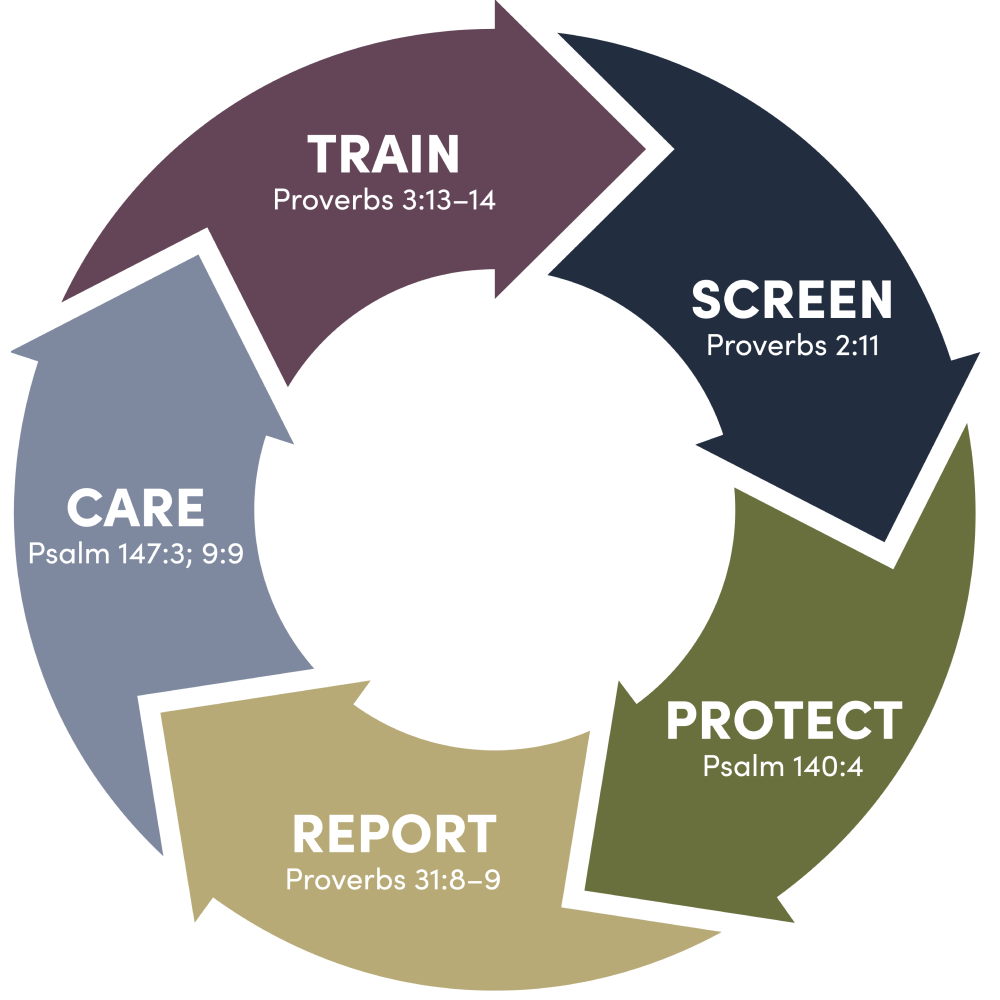
Ministry Toolkit
Essentials To Prevention & Protection

The desire and goal of this toolbox is to make every church the safest place on planet Earth for every child, student, and adult who comes to a church. These tools are not designed to force anything upon your church, but instead, to give your church the tools and resources needed to make your church a safe place. To make our churches safe from abuse, we must be proactive. Developing policies and procedures ahead of time, training and educating staff and volunteers, as well as partnering with abuse experts will set your church up well to be a safe place for your community. It is up to the pastors and leaders of a church to lead this charge.
The Essentials: Sexual Abuse Prevention and Response Training curriculum is designed to assist local churches of all sizes (with particular benefit for small and medium-sized churches which represent the overwhelming majority of the SBC) to walk through five sessions that unpacks each essential, helping them establish or evaluate an abuse prevention and response plan. The curriculum provides easy “Next Steps” to put each essential into practice.
Implementation is easy using the 5-5-5 method!
Gather a team of 5 church leaders made up of those who lead or work with children, students, and vulnerable adults, the Pastor, deacons/elders, etc.
Go through the 5 essentials in the order they are presented and complete each essential’s next steps before moving on to the next one.
Allow roughly 5 months to complete all of the Next Steps. It may take longer than 5 months—that’s okay. Once you enter the curriculum, you’ll be prompted with a five question assessment. At the end of the curriculum, you’ll be prompted with those same questions with the goal being able to answer ‘yes’ to those five questions!
Blessings to you and your team as you embark on this journey!
THE FIVE ESSENTIALS
Here are Five Essential Action Steps to begin to protect your church from predators who seek to prey on the vulnerable among you and to care well for victims and survivors of abuse:
But you, God, see the trouble of the afflicted; you consider their grief and take it in hand. The victims commit themselves to you; you are the helper of the fatherless. (Psalm 10:14)
- TRAIN
“Blessed are those who find wisdom, those who gain understanding, for she is more profitable than silver and yields better returns than gold.” Proverbs 3:13-14
Churches must provide initial and ongoing training for staff, leaders, and volunteers that raises awareness about sexual abuse and shares effective actions to help prevent and respond well to incidents of abuse in the church.
- SCREEN
“Wise choices will watch over you. Understanding will keep you safe.” Proverbs 2:11
Screening should include a written application, references, a background check, an internet search and social media review, and an interview.
- PROTECT
“Keep me safe, Lord, from the hands of the wicked; protect me from the violent, who devise ways to trip my feet.” Psalm 140:4
Churches must create and implement policies that protect children, youth, and vulnerable adults from grooming and abuse.
- REPORT
“Speak up for those who cannot speak for themselves; ensure justice for those being crushed. Yes, speak up for the poor & helpless, & see that they get justice.” Proverbs 31:8-9
It is critical that every church has a written plan in place to communicate with both the appropriate government authorities and the church in the event of an abuse allegation and that staff and volunteers know how to report abuse both externally and internally.
- CARE
“The Lord is a refuge for the oppressed, a stronghold in times of trouble.” Psalm 9:9
Churches need to be aware of resources for trauma survivors and their families that can provide long-term care. The church’s response in supporting survivors of sexual abuse will either accurately reflect the character of Jesus Christ or misrepresent Him, thereby bringing harm to the survivor, congregation, and abuser.
NOTE: The information contained here is general in nature and is not intended to be legal advice. The Southern Baptist Convention encourages each church to consult with legal counsel when implementing local policies and practices.